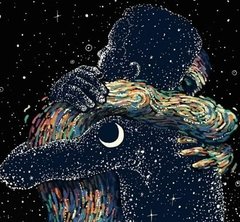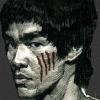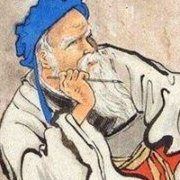Search the Community
Showing results for tags 'wisdom'.
Found 15 results
-
Been trying to find a a qigong technique or meditation technique for boosting brain performance but cant find anything.
- 13 replies
-

Is there anyone familiar with Wisdom/Scholaraly Qi Gong
Asher Topaz posted a topic in Daoist Discussion
I heard there is qigong for improving brain function and intelligence called wisdom/scholarly qigong. However I have not been able to find much information on it. The only book I have seen on it is Mantak Chia's Wisdom Chi Kung. Also in Damo Mitchells book "The comprehensice Guide to Daoist Neigong" he describes that jing can enter the brain and improve brain function through the microcosmic orbit when it first opens. The brain functions on marrow and the more marrow it has the smarter it is. And jing is the building block of marrow. Also Yang qi at higher stages can pass through the zhong mai/ thrusting channel and enter the center of the brain and improve brain fucntions I think that's a samadhi experience. Lastly I came across Wang Liping's lineage. And started to read books like Opening the dragon gate and Ling bao tong zhi neng gong shu and they describe a technique for increasing intelligence called zhi neng gong. It is started after one has successfully practiced yi xian fa. They basically learn to develop inner seeing and awareness in an empty mind and use that inner seeing and awareness to solve problems. Are there any other techniques with more details describing scholarly/wisdom qigong.- 12 replies
-
Extensive and detailed information on Buddha Amitabha https://buddhaweekly.com/amitabha-buddha-infinite-light-whats-name-merits-vast-name-amitabha-practice-synonymous-compassion-happiness/?fbclid=IwAR3XkVoXlL3Dc9ozoMY3BwAG30xNX31cqzO8520rOZD66z8ATB3mxfWlRno
-
From the great Captain Jack Sparrow... “The problem is not the problem. Your problem is your attitude toward the problem.”
-

Off Grid Wisdom: clarity of a life lived authentically
silent thunder posted a topic in The Rabbit Hole
Artists of Life: Kathryn King and Wayne Adams dropping pearls! Sharing deep wisdom realized in their life living off grid in a home they've built over the course of 27 years. They built this small floating off grid world entirely from recycled materials. The entire thing floats on reused fish farming structure and the structures are built from salvaged materials. They gather driftwood for heating and cooking wood. They both carve and work in various art forms. The colors they chose are magenta and green from the fireweed plant, the first to rebirth after forest fires. Their wisdom flows with a piercing calm, gentle and pervasively demonstrative of a life lived wholly and authentically. Various quotes that resonated: there isn't anything you do you don't need to maintain somehow... I'm still workin on it, everything's a process. Learn by doing... There's two types of schools and i've been to both. One's the institution, i say go. But also when you step out... choose your teachers... travel, experience. Get out of that little nest and do things. Get away from the high tech computer and use your hands, head and heart. What you can't learn in schools... life skill. Search for people, something that's for you, before you choose and take your time because it's a knowledge based lifestyle... it's not a freebie... take your time. don't be in a rush. a lifelong process... lose anything but your sense of humor. you'll be fine it's a big deal You gotta enjoy yourself. We enjoy each other, we like each other. I refuse to lose my sense of humor in this great big mess. I think it's ok to stop living a fear filled life. Don't be scared to have a life, get out there. Fear is there to be gotten over and worked through... If you can do that, then you can accomplish anything you want in your life.- 6 replies
-
- 6
-

-
- wisdom
- authenticity
-
(and 1 more)
Tagged with:
-
I recently had some conversations with one of my spiritual mentors and subsequently one of my spiritual brothers. The topic of being stable in the Self-knowledge came up. Being stable in the Self-knowledge to me means, never losing track of the fact that it is the Self that is witnessing all the drama which unfolds on a daily basis upon the body and the mind. Have a hard day at work or at home or in traffic or ______ (fill the blanks in)? If we get caught up in the issues (and hence suffering), then we are not stable in Self-knowledge. Because being stable means we will not suffer one bit. Even if the occurrences obfuscate our true blissful and unaffected nature for even an instant, in the very next instant the knowledge will pull us out of suffering, like a safety line will pull a bungee jumper out of the river as he/she takes a plunge. Being stable means our peaceful nature is never dependent on or is threatened by any occurrence or event. Our true nature is like the sky, which unaffected by the different shapes, sizes of clouds, winds and storms that blow across it. Similarly, irrespective of samsāra and its processes (good or bad), we are always the unaffected, unafflicted awareness.
-
Hello, As I have been practicing and working on attachments and identity. I have reached a state where i have dis-identified myself with my inner self, thoughts, past and such inner stories of me. but now i m stuck with deriving a sense of self and identity from other people, as how people perceive me. I used to be more of an introverted person, but now i m more of an extroverted person, as the need to have an identity is itching and needed from outside Because i need a kind of purpose or a reason to move and live life. I m not taking the choice to release the identity yet, because in process of doing that, i started being sad, and feeling purposeless. Less motivate to live and no passion to life. I have nothing to live for or something to exist for which makes me feel useless and why i exist? Any help or suggestion is appreciated.
-
For whose who know me on this forum, I am known for “hogging” information from kind people without returning the favor. I just found an amazing book however, which is quite rare and it covers a variety of topics, from mirror scrying to magnetism and remote influence. The book is written by Dupotet and is called Magic and Magnetism. Here is a pdf: https://www.woodlibrarymuseum.org/library/pdf/S_ADVG.PDF
-
"Find that fire inside you." The popular modern term to incite motivation and enthusiasm in an individual. To find one's fire is to seek one's goals with determination and straightforwardness that cowers to no obstacle. A mighty forest born of ages long past cannot withstand a spark that ignites a fire, how could one's obstacles or enemies possibly contend? Ah, but however strong and everlasting the fire inside may burn, the inevitable reality comes to pass. Fire may only exist as long as there is fuel to sustain it. The "fire inside" one's motivation, the drive factor, is impossible to attain without fuel. The fuel for one's fire can be described in many ways, and thought of in different forms. Let us begin to forgo the illusions and be more straightforward. Fire is fueled by the ego. Fueled by the self. Whatever myriad form it may take is irrelevant, because determination, hate, sorrow, humiliation, shame, anger, and other forms of ego motivated emotions will always supply a finite amount of fuel for one's fire. An individual feels a response, then a burst of flame. But a raging fire will always settle into kindling. For those who seek motivation, fuel, who often delve with fire, I offer my favorite chapter of the Tao Te Ching: Chapter 15 The ancient masters were subtle, mysterious, profound, responsive. The depth of their knowledge is unfathomable. Because it is unfathomable, All we can do is describe their appearance. Watchful, like men crossing a winter stream. Alert, like men aware of danger. Courteous, like visiting guests. Yielding, like ice about to melt. Simple, like uncarved blocks of wood. Hollow, like caves. Opaque, like muddy pools. Who can wait quietly while the mud settles? Who can remain still until the moment of action? Observers of the Tao do not seek fulfilment. Not seeking fulfillment, they are not swayed by desire for change. This may not be my preferred translation, however it does help convey a truth. The fire inside is but an illusion. The ego is not the way, and one's inner self knows this reality. But let us ask, what can stop the water from falling? Is there a possibility for one man to cease a waterfall? Can a river's rapid course be diverted by the rocks that reside in its bed? Water has no emotion, as it yields to all things. A Taoist favorite among imagery, nevertheless, it is for a reason. If you are an individual in need of motivation, then observe water. Yield and go with the flow of events. When the times comes for you to crash like the massive waves of the ocean in a storm, then you will do so effortlessly. When morning comes and the water is calm and undisturbed, you will return as nature intended. There is no emotion, only the Tao.
-
Hello My name is Peter, I just wanted to introduce myself. I have been on a spiritual search for decades and am still seeking absolute truth. I have determined that righteousness and meditation are major keys to consciousness and enlightenment. It has been quite a nightmare wading through the jungle of religions and lies which have been strewn across the pathway to Truth. I am here to learn and understand more. Thank you for listening to me.
-
I really am exposing my inexperience here, but I'd like to ask the forum for some further information on an area of Taoism that I would like to know more about. I've heard said that in Toaism there are 5 so called "Cardinal Virtues": Righteousness, Wisdom, Benevolence, Propriety, and Fidelity (I've also heard a different account that there are 8 virtues to be reckoned with). In the Tao Te Ching I can find mention of some of these. For instance with verse 38 (the beginning of the second part of the text): 38(Those who) possessed in highest degree the attributes (of the Tao) did not (seek) to show them, and therefore they possessed them (in fullest measure). (Those who) possessed in a lower degree those attributes (sought how) not to lose them, and therefore they did not possess them (in fullest measure). (Those who) possessed in the highest degree those attributes did nothing (with a purpose), and had no need to do anything. (Those who) possessed them in a lower degree were (always) doing, and had need to be so doing. (Those who) possessed the highest benevolence were (always seeking) to carry it out, and had no need to be doing so. (Those who) possessed the highest righteousness were (always seeking) to carry it out, and had need to be so doing. (Those who) possessed the highest (sense of) propriety were (always seeking) to show it, and when men did not respond to it, they bared the arm and marched up to them. Thus it was that when the Tao was lost, its attributes appeared; when its attributes were lost, benevolence appeared; when benevolence was lost, righteousness appeared; and when righteousness was lost, the proprieties appeared. Now propriety is the attenuated form of leal-heartedness and good faith, and is also the commencement of disorder; swift apprehension is (only) a flower of the Tao, and is the beginning of stupidity. Thus it is that the Great man abides by what is solid, and eschews what is flimsy; dwells with the fruit and not with the flower. It is thus that he puts away the one and makes choice of the other. http://sacred-texts.com/tao/taote.htm I can also surmise that the lessons of Fidelity are strewn throughout the text with one particulary powerful example in verse 81 (where in the translation I link 'Fidelity' as a term is interchanged with 'sincerity'): 81Sincere words are not fine; fine words are not sincere. Those who are skilled (in the Tao) do not dispute (about it); the disputatious are not skilled in it. Those who know (the Tao) are not extensively learned; the extensively learned do not know it. The sage does not accumulate (for himself). The more that he expends for others, the more does he possess of his own; the more that he gives to others, the more does he have himself. With all the sharpness of the Way of Heaven, it injures not; with all the doing in the way of the sage he does not strive. http://sacred-texts.com/tao/taote.htm In my grappling with google, when I search for these terms in relation to Toaism I find various commentaries on the Tao Te Ching, people's personal musings on Taoism in general, but no other (as far as I can see) official canon. So my question is: 'Is there a classic text, or a school of Taoism that includes these things? And where are these virtues are enshrined, apart from in the Tao Te Ching?' It's a topic I'm profoundly interested in so any help will be much appreciated. Thanks.
- 29 replies
-
- Tao Te Ching
- Righteousness
-
(and 4 more)
Tagged with:
-
.
- 49 replies
-
- discrimination
- virtue
-
(and 1 more)
Tagged with:
-
I found the following Text while messing about on the internet, Im always looking for diferent adaptations of the Tao Te Ching as well as personal input and interpretations people have posted arround. Not only do I find it incredibly amusing, I think it has a certain clarity you won't find in many other Taoism texts out there. I apologize for the inconvenience if it's been posted before. Link: http://cantbeatfun.com/Tao/tao_rh.htm A slice for your reviewing. adapted by Ron Hogan originally attributed to "Jesse Garon"[...]15The ancient Masters were pretty damn impressive.They were deep. Real deep.Words can't even begin to describe how deep they were.You can only talk about what they were like.They were careful, like a man walking on thin ice.They were cautious, like a soldier behind enemy lines.They were polite, like a guest at a party.They moved quickly, like melting ice. They were as plain as a block of wood.Their minds were as wide as a valley, and their hearts were as clear as spring water.Can you wait for that kind of openness and clarity before you try to understand the world?Can you stay still until events have unfolded before you do the right thing?When you act without expectations, you can accomplish great things. 16Clear your head.Stay calm.Watch as everything happens around you.Everything reverts to its original state, which was nothing.And whenever something becomes nothing, it gets right with Tao.If you don't understand that, you're going to screw up somewhere down the line.If you figure it out, you'll always know what to do.If you get right with Tao, you won't be afraid to die, because you know you will.
-
Northern Wisdom: The Havamal, Tao of the Vikings http://www.amazon.co.../dp/B006Z800CY/ I read the old version of the Havamal for a Norse Mythology class, and found it very interesting. It's a collection of wise sayings from the Vikings, mythically attributed to Odin. Many of these wise ways of living aren't emphasized in our culture these days, but we'd totally benefit from learning and implementing them! This modern interpretation is pretty fantastic...it's a great compliment to the Tao Te Ching, in my opinion, for having small quotes to remember which can enrich our lives. The subject matter is much more practical in tone. Something interesting about the Viking culture is that they HIGHLY valued these types of wise sayings. They would memorize them, and often test each other's wisdom upon meeting...if they heard something that was new, they'd have another saying to impress upon their minds. It was like a friendly game of wits. They lived by these ideas...sometimes making really poor decisions, but with the intention of making the most effective decisions.
-
The game of being has a 'time-out' box where beings enter not to be... the dreamless dream. Not-being involves accepting 'what is not' as being and holding "what is" as not being. 'Dualistic' notions of not-being reflect being within the dream. At all time Beings being none-beings remain within the not-being being unaware of being until the moment that what is impossible becomes possible and the impassable passage be passed. At any time a being can choose to wake up from the dreamless dream though thats impossible for a none-being to accomplish, for those who think they can't do it will not do it even if they could do it. For those who know, I have little to add for those who do NOT know I will say: - the man who refuses to see, and wishes not to see, sees without seeing where as the blind man, sees without seeing Some see 'seeing without seeing' as the key to see and to not see some know the elephant as the elephant! - "A ray of light suffices to enlighten and disintegrate darkness". Lies just disintegrate in the presence of the truth... and those who know and recognize the truth can experience all the possibilities and realities with a single thought (feeling understanding act) though they do not have to experience it all to know it all. I would like each and everyone to know the truth and be enlighten... and keep on watering the plants and chopping wood... What would you like be? Can a finite temporary experience include it all while also transcending the finite temporary experience? The enlightened know from experience the singular valid answer... believers know the stories told until they experience a singular transcendental enlightenment instant ... of course there are all sort of storytellers with all sort of captivating lines and all sort of motives... which do you seek to cultivate and contemplate.
-
- 1
-

-
- duality
- singularity
-
(and 3 more)
Tagged with:













